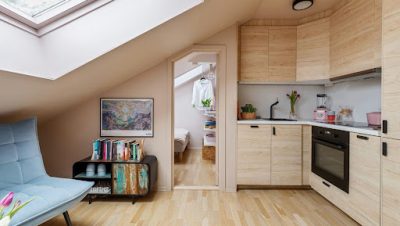
Homes and Gardens / Advertising Feature
Growing Green: How Urban Gardening is Transforming Bristol’s Neighbourhoods
In recent years, Bristol has become a leading example of how urban spaces can be reimagined into vibrant, green oases. From rooftop vegetable patches to community allotments, the urban gardening movement is blossoming across the city—and it’s doing more than just beautifying backyards. It’s strengthening communities, reducing carbon footprints, and even improving mental health.
The Rise of Urban Gardening in Bristol
With more people living in flats or homes with limited outdoor space, traditional gardening isn’t always feasible. Urban gardening bridges that gap by making use of unconventional areas—balconies, walls, rooftops, and even pavements—to grow herbs, flowers, and fresh produce. Organisations such as Incredible Edible Bristol and Bristol Food Network have played vital roles in educating and inspiring residents to turn grey spaces green.
is needed now More than ever
Why Urban Gardening Matters
Food Security: Growing your own food—no matter how small the yield—can make a big difference in reducing reliance on supermarket supply chains.
Environmental Impact: More greenery means more carbon absorption, improved air quality, and increased biodiversity within the city.
Community Bonding: Shared gardens in neighbourhoods or housing estates foster collaboration, interaction, and shared responsibility.
Mental Health Benefits: Studies show that tending to plants and spending time in green spaces can significantly reduce stress and anxiety.
Getting Started With Urban Gardening
You don’t need a large garden or fancy tools to begin. Here are a few easy ways to start your green journey:
- Container Gardening: Use pots or upcycled containers to grow herbs and vegetables on balconies or windowsills.
- Vertical Gardens: Ideal for limited space—wall-mounted planters and hanging baskets work wonders.
- Community Gardens: Get involved with a local initiative. Many Bristol groups offer plots or shared spaces for beginners.
- Composting: Even a small compost bin can help recycle kitchen waste into nutrient-rich soil for your plants.

Keeping Spaces Clean and Green
Urban gardening often involves clearing out old materials, dead plants, or bulky waste. If you’re transforming a neglected corner or unused yard, you might need a quick solution to get rid of rubbish before you can plant. That’s where services like same day rubbish removal become invaluable. They help clear debris quickly, so you can focus on turning your urban patch into a green paradise without delay.
Final Thoughts
Bristol’s urban gardening scene isn’t just a passing trend—it’s a quiet revolution reshaping how we interact with our spaces, our food, and each other. Whether you’re an experienced gardener or just starting out with a few pots of mint and basil, the message is clear: small changes can grow into something beautiful.
 Our newsletters emailed directly to you
Our newsletters emailed directly to you



















